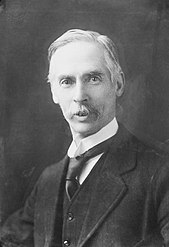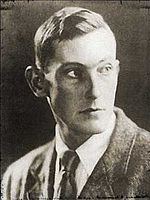University Of Cambridge Institute Of Continuing Education
The University of Cambridge Institute of Continuing Education (ICE) is a department of the University of Cambridge dedicated to providing continuing education programmes which allow students to obtain University of Cambridge qualifications at undergraduate and postgraduate level.
Its award-bearing programmes range from undergraduate certificates through to part-time master's degrees. ICE is the oldest continuing education department in the United Kingdom.
 The Institute's headquarters at Madingley Hall | |
| Established | 1873 |
|---|---|
| Founder | James Stuart |
| Affiliation | University of Cambridge |
| Director | James Gazzard |
| Students | 6,000 |
| Location | , England 52°13′29″N 0°02′15″E / 52.2248°N 0.0374°E |
| Website | www |
 | |
The institute has an annual enrolment of over 6,000 students, including around 1,000 students from over 60 countries who attend the University of Cambridge's annual international summer programme. Students can choose from around 250 different courses across three broad disciplinary themes: Arts and Sciences; Creative Writing and English Literature; and Professional Studies.
The institute has its origins in a series of lectures given by James Stuart in 1867. It is primarily based at Madingley Hall in Cambridgeshire.
History

The Institute of Continuing Education (ICE) was founded as the Local Lectures Syndicate in 1873 by the University of Cambridge engineer James Stuart. It has also been previously known as the Board of Extra-Mural Studies (BEMS) and the Board for Continuing Education.
In 1867, the suffragist Anne Clough and the North of England Council for Promoting the Higher Education of Women commissioned James Stuart to deliver a course of lectures in five English cities in direct response to the growing need for educational opportunity for girls and women. These lecturers marked the beginning of the university extension movement, which aimed to provide tertiary teaching for those unable to go to university. Extension centres, guided by Cambridge academics, in cities such as Exeter and Sheffield were central to the formation of new university colleges and led to the expansion of universities in cities across England in the late 1800s.
The University of Cambridge sanctioned the university extension movement in 1873, when it offered its first course commencing in Derby on 8 October. In the same year, the university appointed the Local Lectures Syndicate, which included James Stuart, as well as Brooke Westcott, Joseph Lightfoot, and Henry Sidgwick. In 1924, the Local Lectures Syndicate became the autonomous Board of Extra-Mural Studies (BEMS) and it found a new permanent home a few years when it moved to the newly built Stuart House in Mill Lane, Cambridge in 1927. The board was based at Stuart House until 1975, when it moved to Madingley Hall in Cambridgeshire.

In August 1991, the Board of Extra-Mural Studies (BEMS) was renamed as The Board for Continuing Education. The institute received its current name on 1 January 2001.
Directors

| Name | Period |
|---|---|
| James Stuart and Reverend V.H. Stanton (Joint Secretaries) | 1873-1876 |
| Reverend G. F. Browne | 1876-1891 |
| Arthur Berry | 1891-1894 |
| R.D. Roberts | 1894-1902 |
| Reverend D.H.S Cranage | 1902-1928 |
| Geoffrey Hickson | 1928-1967 |
| John Andrew | 1967-1977 |
| Leslie Wayper | 1977-1980 |
| Michael Allen | 1980-1990 |
| Susan Rawlings (interim director) | 1990-1990 |
| Michael Richardson | 1990-2003 |
| Susan Rawlings (interim director) | 2003-2004 |
| Richard Taylor | 2004-2009 |
| Rebecca Lingwood | 2009-2015 |
| Sir Michael Gregory (interim director) | 2015-2016 |
| James Gazzard | 2016–present |
Location and buildings
The institute's headquarters are in the village of Madingley, Cambridgeshire. It is housed in Madingley Hall, about four miles west of the Cambridge city limits. Madingley Hall was built in the 1540s and was later rented by Queen Victoria for the young Prince of Wales (later Edward VII) while he was a student at Cambridge. The Hall incorporates 14 classrooms, 62 study bedrooms and full catering.
Academic overview
ICE offers residential, online, weekend, summer, and part-time courses, as well as public lectures. The duration of study varies, from one and two-day courses, through two-year part-time master's degrees, and courses are often taken for personal interest or for professional development. Students can study towards University of Cambridge qualifications, such as undergraduate sub-degrees and postgraduate qualifications, including a Master of Studies qualification which allows students to matriculate through a Cambridge college.
The institute employs a group of academic directors across its major discipline areas, a number of these academics are also university teaching officers and some hold college affiliations. The institute's teaching is also accomplished by a panel of about 300 tutors located in the Cambridge area and elsewhere.
Undergraduate certificates, diplomas and advanced diplomas

ICE's undergraduate courses cover over 30 subjects and all courses are accredited via the United Kingdom's Credit Accumulation and Transfer Scheme (CATS). The undergraduate award-bearing courses are studied part-time over an academic year. A certificate is a FHEQ level 4 award, a diploma is a FHEQ level 5 award and an advanced diploma is a FHEQ level 6 award. ICE offers undergraduate certificates, diplomas and an undergraduate research-based advanced diploma, which lasts two years and it's equivalent to the completion of the third year of full-time undergraduate study at a BA level. Both the Undergraduate Advanced Diploma in Research in the Arts/Sciences and the Advanced Diploma in Economics (from the Faculty of Economics) are considered as equivalent to a second bachelor’s degree and they enable students to apply for postgraduate studies such as master's degree or Postgraduate Diploma.
Postgraduate certificates and diplomas
ICE's one-year part-time postgraduate (FHEQ level 7) courses give students the opportunity to gain a recognised qualification in the arts, sciences or professional disciplines.
Part-time master's degrees

Master of Studies (MSt) degrees at ICE are usually undertaken over two years. The abbreviation MSt is used at the University of Cambridge (and the University of Oxford) to designate a 180-credit FHEQ level 7 Master's degree studied on a part-time basis (MPhil is used for equivalent courses studied on a full-time basis). ICE delivers a range of MSt courses in fields including Clinical Medicine, Medical Education, Artificial Intelligence and Creative Writing. ICE also acts as the Admitting Body for MSts offered by other University departments.
In the 2018–19 academic year, ICE led the introduction of Apprenticeships at Cambridge University to offer skill-based apprentice courses, giving students the opportunity to earn a postgraduate qualification in a select range of professional fields.
In 2020, ICE offered two new vocational master's degree courses: a master's degree in writing for performance, covering theatre, performance poetry, film, TV, radio and stand-up comedy, and the UK's first ever master's degree in the responsible use of artificial intelligence. The latter qualification is designed for technology makers and other professionals who wish to ensure their products cause no harm or augment bias and injustice such as sexism.
Short courses
Between 2014 and 2019, ICE supported The Queen Elizabeth Diamond Jubilee Trust to deliver the Queen's Young Leaders Programme. QYLP enabled young people from across the Commonwealth to further develop a range of community projects.
In September 2019, ICE launched a new series of short courses called ‘Super Tuesdays,’ which provided a three-hour introduction to a specific topic for adults of all ages, with no previous qualifications necessary.

International summer programme
The University of Cambridge International Summer Programme provides an intensive one-to six-week learning experience with over 200 courses across eleven programmes. The programme attracts over 60 nationalities from ages 18 to over 80.
International pre-master's programme
The Cambridge International Pre-Master's Programme is a nine-month full-time programme for students who want to prepare for study at master's degree level at an English speaking university. The course aims to develop students’ abilities in research methods and practices and understanding of emerging themes in business management or engineering.
Students

Throughout the 2019–20 academic year, 6,057 adult students enrolled on courses at ICE and a further 2,151 adults attended both virtual and in-person events.
In the summer of 2020, ICE announced it was launching a £1 million bursary programme to help adults hit hardest by the COVID-19 pandemic. As part of the programme, the institute offered 1,000 bursaries, each worth £1,000, to go towards tuition fees for more than 30 part-time courses. To support postgraduate students who studied during the COVID-19 pandemic, ICE launched another bursary scheme in February 2021. The bursary provides 100 University of Cambridge students a contribution of £2,100 towards the cost of a selection of ICE undergraduate certificates, diplomas and advanced diplomas.
Student life
Students studying for a qualification that is at least one academic year in length (starting with Undergraduate Certificates) receive a student card for full access to the Cambridge University Library and other University of Cambridge facilities.
Like all Cambridge University students, ICE students are entitled to free entry to the University Botanic Gardens on presentation of their University card. ICE students are also entitled to a 20% discount on books published by Cambridge University Press, which can be purchased at The Cambridge University Press Bookshop.
Notable people
Academics
- During 1903–1910 E. M. Forster lectured for Cambridge University's Department of Extra-mural Studies (ICE).
- In 1923 George Mallory took a job as lecturer with the Institute of Continuing Education.
- T. S. Eliot delivered series of extramural lectures at University of Cambridge
- Gillian Carr, archaeologist specialising in the Holocaust, conflict archaeology, Iron Age and the Romans
- T. S. Eliot delivered series of extramural lectures at University of Cambridge
- E. M. Forster delivered his first series of extramural lectures at University of Cambridge in 1903 between writing A Room with a View.
- Dr. Rosemary Horrox, is an affiliated lecturer of History at ICE.
- George Mallory lectured at ICE in 1923 (then known as the Board of Extra-Mural Studies), before taking leave to climb Mount Everest in 1924.
- Caroline Malone, archaeologist and prehistorian
- Natasha Pulley, a British author.

J. A. Hobson attended courses in political economy offered by the Cambridge board of Extra-Mural Studies. - Dr. Chris Smith, a British consultant virologist and founder of The Naked Scientists science radio programme and podcast, is employed by ICE as a Public Understanding of Science Fellow.
Alumni
- J. A. Hobson, English economist and social scientist.
- Sara Collins, author of The Confessions of Frannie Langton.
- Annabel (A.F.) Steadman, author of the Skandar and the Unicorn Thief book series.
- Sarah Sultoon, author of The Source.
Supervision by university
The work of ICE is governed by the general board of the University of Cambridge, through a management committee and the institute's lecturers used to be appointed by the university. All award-bearing courses receive a University of Cambridge qualification, which are part of the UK's Credit Accumulation and Transfer Scheme (CATS).
See also
References
External links
This article uses material from the Wikipedia English article University of Cambridge Institute of Continuing Education, which is released under the Creative Commons Attribution-ShareAlike 3.0 license ("CC BY-SA 3.0"); additional terms may apply (view authors). Content is available under CC BY-SA 4.0 unless otherwise noted. Images, videos and audio are available under their respective licenses.
®Wikipedia is a registered trademark of the Wiki Foundation, Inc. Wiki English (DUHOCTRUNGQUOC.VN) is an independent company and has no affiliation with Wiki Foundation.






